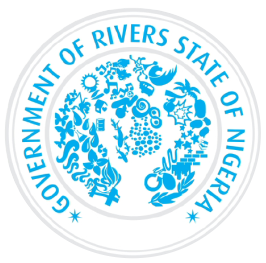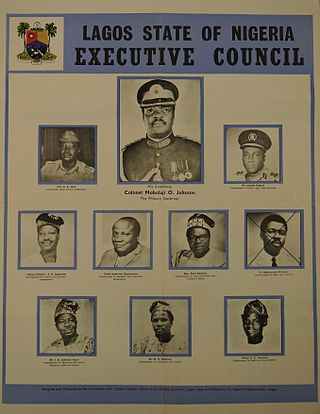Politics of Macau is a framework of a politically constrained multi-party presidential system, dominated by the People's Republic of China. It includes the legislature, the judiciary, the government, and a multi-party system. Executive power is exercised by the government, led by the Chief Executive.

Politics of Mauritius takes place in a framework of a parliamentary democracy. The separation of powers is among the three branches of the Government of Mauritius, namely the legislative, the executive and the Judiciary, is embedded in the Constitution of Mauritius. Being a Westminster system of government, Mauritius's unicameral house of parliament officially, the National Assembly, is supreme. It elects the President and the Prime Minister. While the President is voted by a single majority of votes in the house, the Prime Minister is the MP who supports a majority in the house. The President is the Head of State while the prime minister has full executive power and is the Head of Government who is assisted by a council of Ministers. Mauritius has a multi-party system. The Economist Intelligence Unit rated Mauritius a "full democracy" in 2022.
A cabinet secretary is usually a senior official who provides services and advice to a cabinet of ministers as part of the Cabinet Office. In many countries, the position can have considerably wider functions and powers, including general responsibility for the entire civil service.

The government of Florida is established and operated according to the Constitution of Florida and is composed of three branches of government: the executive branch consisting of the governor of Florida and the other elected and appointed constitutional officers; the legislative branch, the Florida Legislature, consisting of the Senate and House; and the judicial branch consisting of the Supreme Court of Florida and lower courts. The state also allows direct participation of the electorate by initiative, referendum, and ratification.

The government of the Philippines has three interdependent branches: the legislative, executive, and judicial branches. The Philippines is governed as a unitary state under a presidential representative and democratic constitutional republic in which the president functions as both the head of state and the head of government of the country within a pluriform multi-party system.
The government of Virginia combines the executive, legislative and judicial branches of authority in the Commonwealth of Virginia. The current governor of Virginia is Glenn Youngkin. The State Capitol building in Richmond was designed by Thomas Jefferson, and the cornerstone was laid by Governor Patrick Henry in 1785. Virginia currently functions under the 1971 Constitution of Virginia. It is Virginia's seventh constitution. Under the Constitution, the government is composed of three branches: the legislative, the executive and the judicial.

The Government of Bihar or Bihar Government is the state government of the Indian state of Bihar and its 9 divisions which consist of 38 districts. It consists of an executive, led by the Governor of Bihar, a judiciary and legislative branches.

The Government of Rivers State consists of elected representatives and appointed officials responsible for the government of Rivers State, Nigeria. Rivers State has a population of about 5 million people, and is one of the 36 states that make up the Federal Republic of Nigeria. The state government is composed of the executive, legislative, and judicial branches, whose powers are vested by the Constitution in the House of Assembly, the Governor and the High Court. The judiciary operates independently of the executive and the legislature. At the local level, elected officials are in charge of local government areas.
The Politics of Rivers State function within the framework of a presidential republic, with the Governor of Rivers State as both head of state and head of government. Rivers State is known for a politically engaged citizenry. The official seat of government is in Port Harcourt. Under the Constitution, Executive power is vested in the Governor. This does not change the fact that such authority may also be exercised through the Deputy Governor or Commissioners. Legislative power is vested in a 32-member unicameral House of Assembly. Judicial power is exercised solely by the judiciary of Rivers State.
Lagos State Government is the government of Lagos State, concerned with the administration of the state ministries. The government consists of the executive, legislative and Judiciary. The government is headed by the Governor who is the policy-maker and often assisted by the commissioners and other civil servants of the state.
The First Wike Executive Council was the Executive Council of Rivers State between 5 June 2015 and 24 June 2017. It was led by Governor Ezenwo Nyesom Wike with Ipalibo Banigo as Vice-Chairman. The first set of appointments to the cabinet were made on 5 June 2015. The designees included Kenneth Kobani, Chukwuemeka Woke, Emmanuel C. Aguma, Fred Kpakol, Onimim Jacks, Emmanuel Okah and Opunabo Inko-Tariah. Governor Wike appointed Desmond Akawor, Ambassador to South Korea, to serve as Administrator of the Greater Port Harcourt City Development Authority.
The Executive Council of Abia State (informally and more commonly, the Cabinet of Abia State) is the highest formal governmental body that plays important roles in the Government of Abia State headed by the Governor of Abia State. It consists of the deputy governor, Secretary to the State Government, chief of staff, commissioners who preside over ministerial departments, and the governor's special aides. Appointment into these positions except the position of deputy governor is exercised by the governor on approval and confirmation by the Abia State House of Assembly.

The Lagos State Executive Council is the highest formal governmental body that plays important roles in the Government of Lagos State headed by the Governor of Lagos State. It consists of the Deputy Governor, Secretary to the State Government, Chief of Staff, Commissioners who preside over ministerial departments, and the Governor's special aides.
The Oyo State Executive Council is the highest formal governmental body that plays important roles in the Oyo State Government headed by the Governor of Oyo State. It consists of the Deputy Governor, Secretary to the State Government, Chief of Staff, Commissioners who preside over ministerial departments, and the Governor's special aides.
The Nasarawa State Executive Council is the highest formal governmental body that plays important roles in the Government of Nasarawa State headed by the Governor of Nasarawa State. It consists of the Deputy Governor, Secretary to the State Government, Chief of Staff, Commissioners who preside over ministerial departments, and the Governor's special aides.
The Akwa Ibom State Executive Council is a governmental body that plays important roles in the Government of Akwa Ibom State headed by the Governor of Akwa Ibom State. It consists of the Deputy Governor, Secretary to the State Government,Chief of Staff to the Governor, Head of Civil Service, Deputy Chief of Staff, Commissioners who preside over ministerial departments, and the Governor's special aides.
The Cross River State Executive Council is the highest governmental body that plays important roles in the Government of Cross River State, Nigeria, headed by the Governor of Cross River State. The Council consists of the Governor, Deputy Governor, Secretary to the State Government, and Commissioners who are Chief Executive Officers of Ministries in the State.
The Kebbi State Executive Council is the highest formal governmental body that plays important roles in the Government of Kebbi State headed by the Governor of Kebbi State. It consists of the Deputy Governor, Secretary to the State Government, Chief of Staff, Commissioners who preside over ministerial departments, and the Governor's special aides.
The Jigawa State Executive Council is the highest formal governmental body that plays important roles in the Government of Jigawa State headed by the Governor of Jigawa State. It consists of the Deputy Governor, Secretary to the State Government, and Commissioners who preside over ministerial departments.
In the Federal Republic of Nigeria, state executive councils are the highest formal governmental body in state governments headed by governors.





